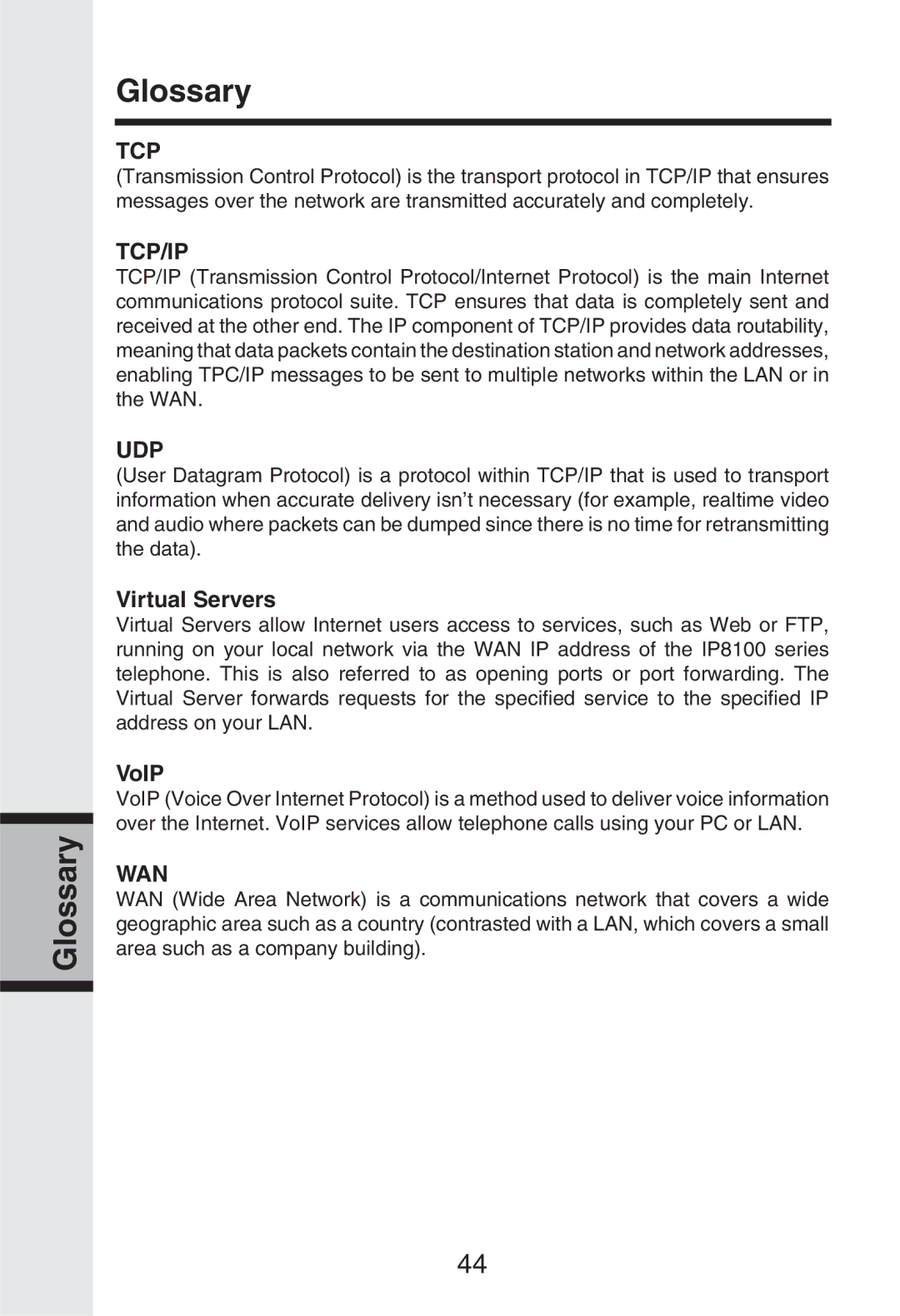
Glossary
Glossary
TCP
(Transmission Control Protocol) is the transport protocol in TCP/IP that ensures messages over the network are transmitted accurately and completely.
TCP/IP
TCP/IP (Transmission Control Protocol/Internet Protocol) is the main Internet communications protocol suite. TCP ensures that data is completely sent and received at the other end. The IP component of TCP/IP provides data routability, meaning that data packets contain the destination station and network addresses, enabling TPC/IP messages to be sent to multiple networks within the LAN or in the WAN.
UDP
(User Datagram Protocol) is a protocol within TCP/IP that is used to transport information when accurate delivery isn’t necessary (for example, realtime video and audio where packets can be dumped since there is no time for retransmitting the data).
Virtual Servers
Virtual Servers allow Internet users access to services, such as Web or FTP, running on your local network via the WAN IP address of the IP8100 series telephone. This is also referred to as opening ports or port forwarding. The Virtual Server forwards requests for the specified service to the specified IP address on your LAN.
VoIP
VoIP (Voice Over Internet Protocol) is a method used to deliver voice information over the Internet. VoIP services allow telephone calls using your PC or LAN.
WAN
WAN (Wide Area Network) is a communications network that covers a wide geographic area such as a country (contrasted with a LAN, which covers a small area such as a company building).
44
